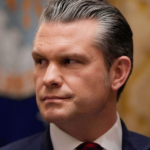In a series of dramatic measures, Argentina has initiated a bold economic overhaul, including a 54% devaluation of the peso and significant fiscal cuts, marking the first steps of President Javier Milei’s shock therapy program. The official exchange rate was weakened to 800 pesos per dollar, a significant shift from the previous rate of 366.5 per dollar. The central bank will now target a monthly devaluation of 2%.
Economy Minister Luis Caputo highlighted the urgency of addressing Argentina’s fiscal deficits, emphasizing that “there is no more money.” The government aims to eliminate the primary fiscal deficit next year by implementing a radical fiscal adjustment, including a reduction in spending equivalent to 2.9% of gross domestic product (GDP). Key areas targeted for cuts include energy and transport subsidies, social security, and pensions, with the government also ending indexation of pension payments.

The finance ministry anticipates tax revenue growth of 2.2% in the coming year. Additional measures include halving the number of ministries, cutting transfers to provinces, suspending public works, and simultaneously boosting specific social welfare programs.
The International Monetary Fund (IMF) praised Argentina’s “bold initial actions,” expressing confidence that these measures will stabilize the economy and create the foundation for sustainable and private-sector-led growth.
President Javier Milei, in his inauguration speech, had warned of months of economic challenges for Argentines as he seeks to address the economic crisis inherited from his predecessor. With inflation already exceeding 140% annually, the government’s measures aim to steer the country away from its economic difficulties.
The devaluation of the peso, long anticipated, follows the closure of Argentina’s export registry and restrictions on the official currency market’s transactions. The government’s efforts to control the peso’s decline through various measures have been replaced by a decisive approach focused on addressing the root problems.
Investors, initially spooked by Milei’s emergence, have responded positively to his recent decisions, including the appointment of Wall Street veterans to key cabinet positions. The effectiveness of these measures will be crucial as Argentina navigates its economic challenges under Milei’s leadership.
Former finance chief Mauricio Macri, Luis Caputo, who negotiated a significant deal with bondholders, is back in a key role, accompanied by Santiago Bausili, a veteran from Deutsche Bank and JPMorgan Chase & Co, leading Argentina’s central bank.
Argentina’s economic overhaul is a pivotal moment that will shape the country’s economic trajectory in the coming years.









